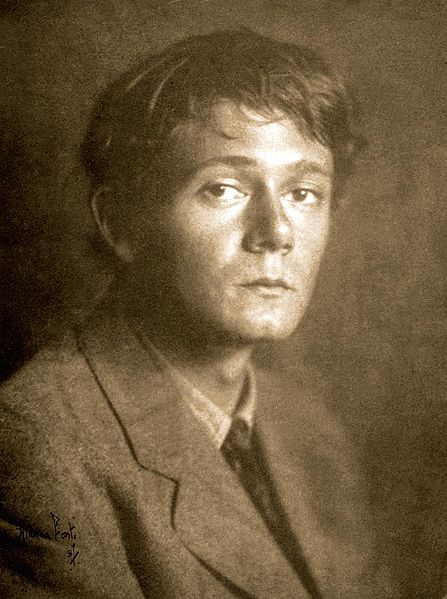
Clark Ashton Smith was not only one of the three pillars of Weird Tales, but a key writer in the American tradition of fantasy that brought forth H.P. Lovecraft. Thanks to Campbell’s Unknown and the explosion of Tolkien copycats, this American tradition of weird fantasy has been relegated to pastiche and parody. Smith’s “The Abominations of Yondo”, his first short story, shows what’s been lost along the way.
An unnamed narrator recounts his journey into the desolated deserts of Yondo, a region at the edge of the world-rim ruined by exposure to the Great Beyond:
I will not detail the indiscretions which had led me, a careless stranger from far-off lands, into the power of those dreadful magicians and mysteriarchs who serve the lion-headed Ong. These indiscretions, and the particulars of my arrest, are painful to remember; and least of all do I like to remember the racks of dragon-gut strewn with powdered adamant, on which men are stretched naked; or that unlit room with six-inch windows near the sill, where bloated corpse worms crawled in by hundreds from a neighboring catacomb. Sufficient to say that, after expending the resources of their frightful fantasy, my inquisitors had borne me blindfolded on camel-back for incomputable hours, to leave me at morning twilight in that sinister forest. I was free, they told me, to go whither I would; and in token of the clemency of Ong, they gave me a loaf of coarse bread and a leathern bottle of rank water by way of provision. It was at noon of the same day that I came to the desert of Yondo.
So far, I had not thought of turning back, for all the horror of those rotting cacti, or the evil things that dwelt among them. Now, I paused knowing the abominable legend of the land to which I had come; for Yondo is a place where few have ventured wittingly and of their own accord. Fewer still have returned – babbling of unknown horrors and strange treasure; and the life-long palsy which shakes their withered limbs, together with the mad gleam in their starting eyes beneath whitened brows and lashes, is not an incentive for others to follow. So it was that I hesitated on the verge of those ashen sands, and felt the tremor of a new fear in my wrenched vitals. It was dreadful to go on, and dreadful to go back, for I felt sure that the priests had made provision against the latter contingency. So after a little I went forward, singing at each step in loathly softness, and followed by certain long-legged insects that I had met among the cacti. These insects were the color of a week-old corpse and were as large as tarantulas; but when I turned and trod upon the foremost, a mephitic stench arose that was more nauseous even than their color. So, for the nonce, I ignored them as much as possible.
The story is simple, but like all simple things, the quality is in the execution. Smith is as profligate with description as modern fantasists with history and back-story. Like with John Wright, a dictionary is a must when reading Clark Ashton Smith, and just as rewarding. In describing the horrors that send the narrator running back to his tormentors, Smith writes a dense prose equivalent to a tone poem, where each paragraph evokes new horrors through multiple senses. The careless would call this prose purple, but Smith is painting revulsion with words. The current fashion of one sensory word a page is not enough to evoke dread in the reader, which is Smith’s ultimate goal. By focusing on sensation and mood, Smith immerses readers within sentences, where present-day writers require chapters. And thus Yondo is more memorable than the Three Rivers, Elantris, or Camorr, despite the chapters’ worth of words spent on exposition for each.
Also lost since the days of Yondo is sincerity. Many critics have noticed the detached irony and self-deprecating humor that clutters the arts, including storytelling. This has turned the contemporary pastiche of American weird fantasy away from clumsy attempts at horror and into The Collect Call of Cthulhu. But this present day grappling for coolness destroys the atmosphere of horror, of revulsion, of fearful reverence. This shouldn’t come as a surprise; detachment and humor are coping mechanisms, after all. To create a right and proper atmosphere of dread, a writer has to commit to the story to evoke the mood. He has to put the story over, and not himself and his cleverness. Smith commits fully from the opening of his first-person campfire confession narration, and in the process, reveals the power of sincerity in writing.
Speaking of campfire tales of the dark, do yourself a favor and find an audio reading of “Abominations of Yondo”, whether on audioook or YouTube. Like many of his contemporaries, Clark Ashton Smith was a poet and brought that command of rhythm and meter to his prose. A skilled narrator reading Smith’s words aloud adds a deeper urgency to the eeriness of Yondo’s desolation. After all, warnings are made to be heard.
Excellent review! I’ve always loved this tale. CAS hit a homerun right out of the gate.
Thanks for putting a spotlight on a master who is all too often forgotten. CAS is one of the best writers of prose and poetry around and the horror master who scares me the most.
I second your recommendation that people listen to an audio of this story. If you can’t, find a quiet place and read it out loud. Like Shakespeare, CAS was meant to be heard even more than to be read.
Yessss, more CAS!